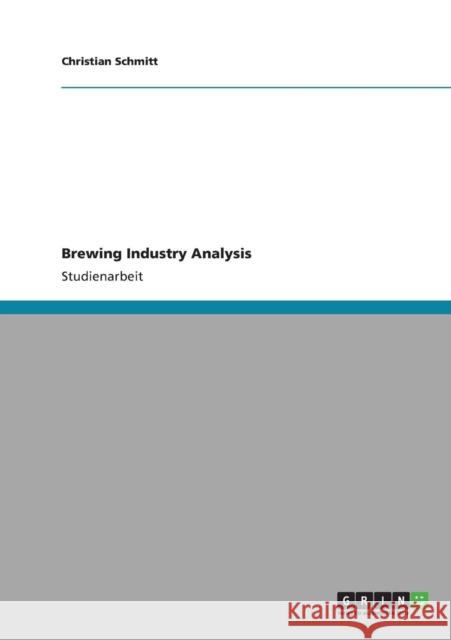Brewing Industry Analysis » książka
Brewing Industry Analysis
ISBN-13: 9783640839438 / Niemiecki / Miękka / 2011 / 80 str.
Studienarbeit aus dem Jahr 2007 im Fachbereich BWL - Industriebetriebslehre, Note: 1,7, University of West Florida, Sprache: Deutsch, Abstract: In the brewing industry exist two profitable segments: The big, global breweries and the small, specialist brewing companies. Companies, who do not differentiate from its competitors or do not have the critical mass, find themselves in a "stuck in the middle"-position. They need to adapt their strategy to find an alliance, or look for differentiation. The advantages of the global brewing companies are: They have bigger cash reserves on hand to survive in competition, posses a better market access and distribution network, profit from economies of scale, have strong market positions, as well as well-known and strong brand names. The small breweries sell beer in their niche with special taste, image or regional background. The beer consumption in the mature market of Western Europe and North America stagnates. New markets emerged in Eastern Europe, Asia and Latin America. The industry becomes more global. The big breweries expand in these emerging markets by acquiring regional companies. The concentration process of the past years is expected to continue. In the traditional beer markets, job opportunities are not good. Breweries replace employees only in the range of normal fluctuation. In contrast to the emerging markets, where the need of specialist is high and the job opportunities are very good. The brewing industry has also to be aware of changing consumer attitudes toward healthier lifestyle, and the growing popularity of wine and beer-mixed drinks. Therefore new products have to be placed. Research and development is believed to be a key element in the future of the industry. Good job opportunities are given in this field.











